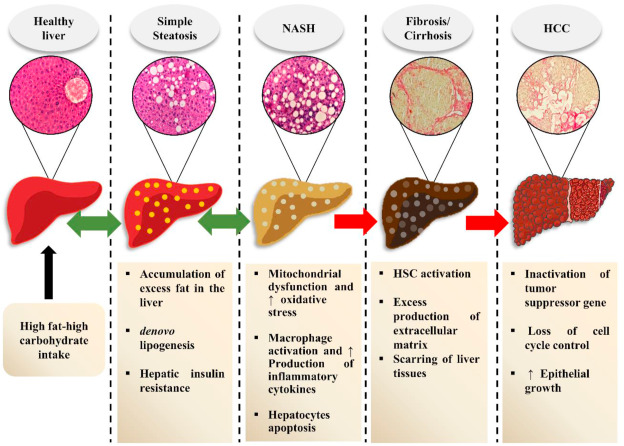
A fatty liver is a condition where fat deposits in the liver interfere with its normal function. While all humans have some fat in their liver, a symptom of fatty hepatitis is the presence of 5 to 8 percent of liver weight. The good news is that this condition is usually curable. If you are overweight, you should avoid consuming fatty foods and exercise regularly to avoid fat in the body. A healthy lifestyle is also important to prevent fatty hepatitis.
Fatty liver is an inflammatory disease of the liver. It is usually hereditary and affects people with a history of high cholesterol, excessive alcohol intake, and other risk factors. The symptoms of fatty hepatitis include jaundice, right-side abdominal pain, and fever. In women, fatty hepatitis can lead to pre-eclampsia, which can cause life-threatening blood pressure and swelling.
A fatty liver can be caused by a variety of different factors. Most people suffer from chronic alcohol use, but a person can develop it even if they never drink alcohol. During alcohol metabolism, toxins are produced in the liver. When a person experiences a fatty hepatitis, they may experience some or all of the symptoms of fatty hepatitis. A fatty liver can be a sign of a disease or a symptom of a disorder.
The best way to prevent fatty hepatitis is to eliminate all risk factors. Besides stopping alcohol, you should also try to control your sugar levels and cholesterol. By eating a balanced diet, you can reduce your risk of developing fatty hepatitis. However, if you are a heavy drinker, it is vital to seek medical advice. It is also vital to get proper education about fatty hepatitis.
Those with a history of fatty hepatitis should be aware that the condition is usually treatable. Symptoms of fatty hepatitis may include hepatic steatosis and non-alcoholic fatty hepatitis. The site https://cth.co.th/ draws attention to the fact that in some cases people with fatty hepatitis can get sick if they drink too much alcohol or lead a sedentary lifestyle.
Alcohol use is a risk factor for fatty hepatitis. Drinking alcohol can damage the liver. The liver cannot properly break down fat. This is a reversible condition that can be prevented through diet. It is important to avoid unhealthy body fat to prevent fatty hepatitis. Fatty hepatitis can lead to various complications, including diabetes and hypertension.
If you have a symptom of fatty hepatitis, it is recommended to consult a doctor. Excessively fatty liver can lead to cirrhosis. Fortunately, fatty hepatitis is treatable and reversible. A diet rich in fruits and vegetables is recommended. But be careful when eating raw shellfish and other raw shellfish. They can become infected with bacteria and can lead to fatty hepatitis.
The condition is caused by an accumulation of fat in the liver cells. The excess fat can damage the liver, and the inflammation can develop into cirrhosis. Luckily, this disease is reversible and is not contagious. If you have it, you should seek treatment for it. It is important to find a treatment for fatty hepatitis and make sure you follow the recommended diet. This will also help you avoid dangerous hepatitis and other related conditions.
Fatty liver is a condition in which excess fat builds up in the liver. It can also cause the liver to become inflamed. When this happens, a fatty hepatitis may cause the body to produce excessive amounts of fat and may even lead to cirrhosis, which is the end result. The liver will subsequently fail to function properly, and you might be unaware of the problem. If you have fatty hepatitis, seek medical attention immediately. If you have any of these symptoms, it is important to seek treatment.
If you are suffering from fatty hepatitis, you should consult a doctor immediately. The symptoms of fatty hepatitis include abdominal pain and a fatty liver. If you are experiencing abdominal pain, you should consult a doctor to rule out any serious liver disease. A fatty hepatitis diagnosis requires a specialized test that involves a biopsy. This will determine the severity of the fatty liver. In some cases, a specialized ultrasound can detect the presence of fat in the liver.